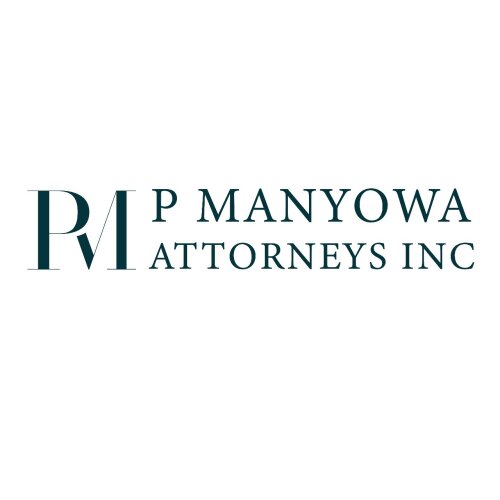Best Land Use & Zoning Lawyers in Polokwane
Share your needs with us, get contacted by law firms.
Free. Takes 2 min.
Free Guide to Hiring a Real Estate Lawyer
List of the best lawyers in Polokwane, South Africa
About Land Use & Zoning Law in Polokwane, South Africa
Land use and zoning laws in Polokwane, South Africa, are designed to regulate the development and use of land within the city's jurisdiction. These laws govern how land can be used, the types of buildings that can be constructed, and the specific areas where certain activities are permitted. The purpose is to ensure sustainable development, preserve the environment, and enhance urban planning. Local authorities are responsible for developing zoning schemes that align with spatial planning frameworks and, ultimately, the vision for growth and development in Polokwane.
Why You May Need a Lawyer
Several situations may require the expertise of a lawyer specializing in land use and zoning in Polokwane. These include disputes over property boundaries, development application denials, rezoning challenges, and compliance issues with zoning laws. Whether you're a property owner, developer, or tenant, understanding the intricacies of zoning regulations can be daunting. A lawyer can assist you in navigating these complexities, ensuring legal compliance, and representing you in contentious matters involving zoning appeals or litigation.
Local Laws Overview
The local land use and zoning laws in Polokwane are guided by the Spatial Planning and Land Use Management Act (SPLUMA), which provides the overarching framework for land use in South Africa. In Polokwane, the municipality develops zoning plans that categorize land into different zones for residential, commercial, industrial, agricultural, or mixed-use. Each zoning category has specific regulations concerning land use, building restrictions, height limitations, and density requirements. Additionally, the Polokwane Local Municipality's By-laws provide further guidance on zoning processes, applications for amendments, and the appeals process.
Frequently Asked Questions
What is zoning?
Zoning is the process through which land is designated for specific uses under municipal planning. Different areas within Polokwane are classified into zones that dictate the types of activities and constructions permitted.
How can I find out my property's zoning classification?
You can obtain zoning information for your property by contacting the Polokwane Local Municipality's planning department or accessing the municipality's online zoning map if available.
Can zoning laws change, and if so, how are they changed?
Yes, zoning laws can change. Changes typically occur through a formal rezoning process initiated by the municipal government or by application from landowners or developers. Public consultations and hearings are usually part of this process to seek community input.
What does the rezoning application process involve?
The rezoning application process involves submitting a detailed application to the municipal planning department, which reviews the proposal in the context of existing plans and regulations. Public notices and hearings are typically required.
What happens if I build a structure that doesn't comply with zoning laws?
If you build a non-compliant structure, you may face penalties, be required to pay fines, or be ordered to modify or remove the structure. Seeking legal advice in such cases is advisable.
What role do public participation and hearings play in zoning decisions?
Public participation and hearings are crucial components of the zoning process. They allow community members to express their views on rezoning applications and ensure transparency and accountability in the decision-making process.
Can I oppose a rezoning application near my property?
Yes, as a resident or stakeholder, you have the right to oppose a rezoning application. You can submit written objections and attend public hearings to voice your concerns.
Is it possible to get a zoning variance?
A zoning variance allows deviation from specific zoning requirements. It's granted in exceptional cases where strict adherence would cause unnecessary hardship. The application must demonstrate why the variance is justified.
How does environmental concern factor into zoning decisions?
Environmental concerns significantly impact zoning decisions. Applications often require environmental impact assessments to ensure sustainable development that respects ecological and climatic considerations.
What should I do if I receive a notice of violation?
If you receive a zoning violation notice, it's imperative to consult a lawyer to explore your options, which may include complying with regulations or challenging the notice.
Additional Resources
For more information on land use and zoning in Polokwane, consider contacting the following resources:
- Polokwane Local Municipality's Planning and Economic Development Department
- South African Council for Planners (SACPLAN)
- The Department of Agriculture, Land Reform and Rural Development
- Local legal firms specializing in land use and zoning law
Next Steps
If you require legal assistance with land use and zoning matters in Polokwane, consider reaching out to a lawyer specialized in these fields. Start by researching local legal professionals, requesting a consultation to discuss your case, and ensuring they have experience with land use and zoning issues specific to the area. Additionally, gathering relevant documents and understanding your specific legal needs will prepare you for your initial meeting with a lawyer.
Lawzana helps you find the best lawyers and law firms in Polokwane through a curated and pre-screened list of qualified legal professionals. Our platform offers rankings and detailed profiles of attorneys and law firms, allowing you to compare based on practice areas, including Land Use & Zoning, experience, and client feedback.
Each profile includes a description of the firm's areas of practice, client reviews, team members and partners, year of establishment, spoken languages, office locations, contact information, social media presence, and any published articles or resources. Most firms on our platform speak English and are experienced in both local and international legal matters.
Get a quote from top-rated law firms in Polokwane, South Africa — quickly, securely, and without unnecessary hassle.
Disclaimer:
The information provided on this page is for general informational purposes only and does not constitute legal advice. While we strive to ensure the accuracy and relevance of the content, legal information may change over time, and interpretations of the law can vary. You should always consult with a qualified legal professional for advice specific to your situation.
We disclaim all liability for actions taken or not taken based on the content of this page. If you believe any information is incorrect or outdated, please contact us, and we will review and update it where appropriate.











